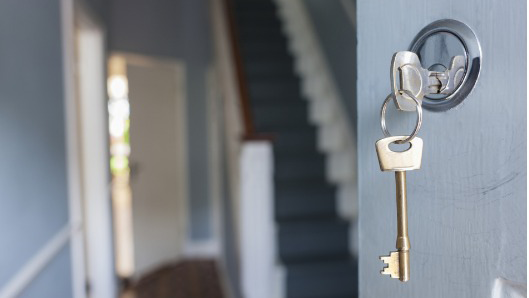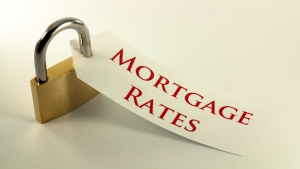
When it comes to securing a mortgage, one of the critical decisions you’ll face is choosing between a fixed-rate and a variable-rate mortgage. Each option comes with its own set of advantages and considerations and the right choice for you depends on your financial situation, risk tolerance and long-term goals.
Fixed-Rate Mortgages
Fixed-rate mortgages lock in one interest rate for the entire loan period, providing stability. This keeps your monthly payments consistent, making budgeting easier. This steadiness is appealing amid economic instability or rising interest rates.
The primary advantage of a fixed-rate mortgage is interest rate protection. You pay the same mortgage rate even if market interest rates rise. This stability can be reassuring, especially for homeowners who prefer to avoid financial surprises.
In exchange for predictability, fixed-rate mortgages have somewhat higher beginning interest rates than variable-rate mortgages. After getting a fixed-rate mortgage, you can’t profit from reduced interest rates until you refinance.
Variable-Rate Mortgages
On the other hand, variable-rate mortgages, also known as adjustable-rate mortgages (ARMs), offer a different dynamic. These mortgages have interest rates that can change periodically, usually in alignment with fluctuations in a specified benchmark interest rate, such as the Prime Rate.
Variable-rate mortgages provide lower beginning interest rates than fixed-rate mortgages, making them appealing to borrowers seeking reduced upfront payments. Variable-rate mortgages provide reduced monthly payments without refinancing when interest rates fall.
Variable-rate mortgages risk increasing interest rates. Your mortgage interest rate and monthly payments may rise with market rates. Variability makes budgeting harder and may not suit individuals who seek financial consistency.
Choosing the right mortgage for you
To determine the best mortgage for your situation, consider the following:
- Risk Tolerance: For stability and avoiding future interest rate rises, a fixed-rate mortgage may be better. If you can handle some unpredictability and market volatility, a variable-rate mortgage may be right for you.
- Financial Goals: Consider your long-term financial objectives. Fixed-rate mortgages provide locked-in payments for long-term homeowners. Variable-rate mortgages may save money if you expect a brief stay.
- Current Market Conditions: Keep up with interest rates and economic projections. This information might help you decide when to lock in a fixed or variable rate.
Fixed- and variable-rate mortgages have pros and cons, so the right choice depends on your needs. Consult a financial adviser or RCB Bank mortgage representative to help you assess your long-term financial objectives and make a choice that meets your requirements.
Click now to find one of our Mortgage Representatives to help you find that perfect home!
Opinions expressed above are the personal opinions of the author and meant for generic illustration purposes only. With approved credit. For specific questions regarding your personal lending needs, please call RCB Bank at 855-BANK-RCB. Some restrictions apply. RCB Bank is an Equal Housing Lender and member FDIC. RCB Bank NMLS #798151.
Sources:
Kopp, C. M. (2023, June 1). Fixed interest rate: Definition, Pros & Cons, vs. Variable Rate. Investopedia. https://www.investopedia.com/terms/f/fixedinterestrate.asp
Fixed vs. variable interest rates: What’s the difference? (2023, October 17). https://www.valuepenguin.com/loans/fixed-vs-variable-interest-rates



